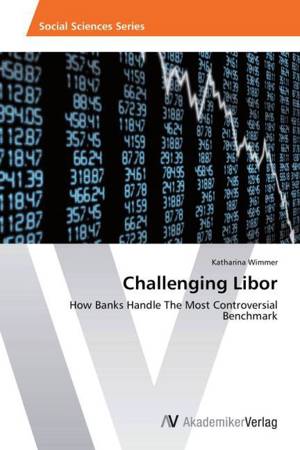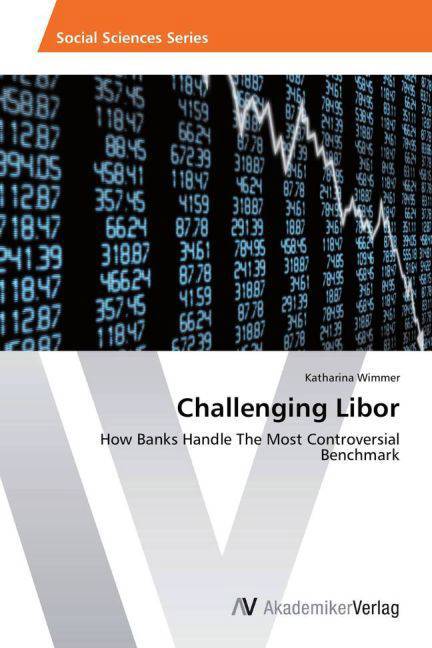
- Afhalen na 1 uur in een winkel met voorraad
- Gratis thuislevering in België vanaf € 30
- Ruim aanbod met 7 miljoen producten
- Afhalen na 1 uur in een winkel met voorraad
- Gratis thuislevering in België vanaf € 30
- Ruim aanbod met 7 miljoen producten
Zoeken
Challenging Libor
How Banks Handle The Most Controversial Benchmark
Katharina Wimmer
Paperback | Engels
€ 32,45
+ 64 punten
Omschrijving
According to the high importance of the Libor for the global financial market and therefore also for Austrian banking industry this paper deals with the questions "Which challenges for financial institutions come with Libor, what has to be done to handle recent manipulation and which challenges do especially Austrian banks face when dealing with Libor-tied products since 2008? Should customer loans, derivatives and money market transactions still be linked to Libor as such considering the latest evolution during crisis?" Also questions about the legal and operational impacts of Libor development are worked out and if similar concerns do exist about the benchmark Euribor. Therefore a deeper insight on suggestions, including advantages and disadvantages how to improve Libor as such and to avoid or decrease manipulation are elaborated. The main aim is to identify and explain some possible challenges banks and financial institutions may face since beginning of the crisis in 2008 when handling financial products tied to Libor. The essential point is to find solutions how to amend determination and fixing process in order to increase accuracy and accountability of this important benchmark in the future.
Specificaties
Betrokkenen
- Auteur(s):
- Uitgeverij:
Inhoud
- Aantal bladzijden:
- 96
- Taal:
- Engels
Eigenschappen
- Productcode (EAN):
- 9783639466720
- Verschijningsdatum:
- 29/05/2013
- Uitvoering:
- Paperback
- Formaat:
- Trade paperback (VS)
- Afmetingen:
- 152 mm x 229 mm
- Gewicht:
- 149 g

Alleen bij Standaard Boekhandel
+ 64 punten op je klantenkaart van Standaard Boekhandel
Beoordelingen
We publiceren alleen reviews die voldoen aan de voorwaarden voor reviews. Bekijk onze voorwaarden voor reviews.











